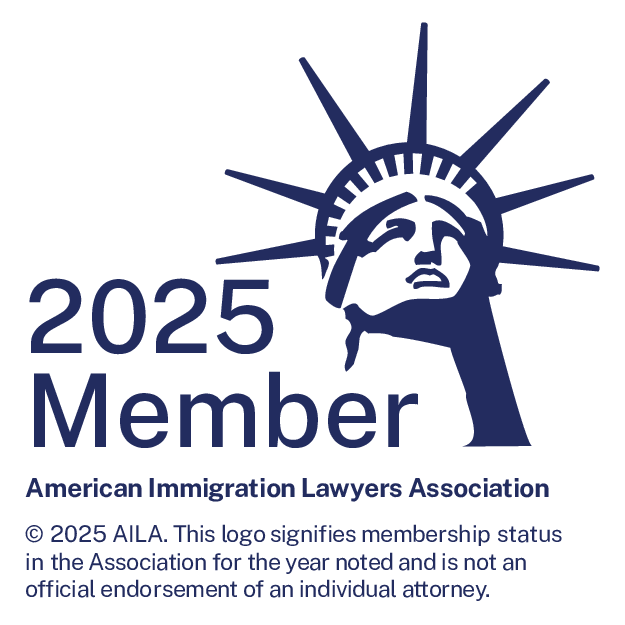Immigration Issues for Physicians
The following is a brief listing of immigration issues that may be of interest to physicians:
NONIMMIGRANT VISAS. Most physicians entering the USA to work in a clinical or research setting will enter on H1B (temporary worker in a specialty occupation) or J1 (foreign exchange visitor) visas. Each visa has its own requirements and benefits.
- H1B Visa can be valid for an initial period of up to three (3) years and can be extended for up to three (3) more years. For clinical physicians, it requires an ECFMG certificate and USMLE 1, 2, and 3 (or FLEX I and II, or NBME I, II, and III), in addition to licensure in the state of practice (or other documentation of legal authorization to practice), and an MD degree. The H1B can be extended beyond six (6) years in special circumstances.
- J1 Visa can be valid for an initial period in accordance with the program length as listed in the DS-2019 form issued by the sponsoring organization, such as the ECFMG. Most often used with clinical training programs, the biggest drawback to the J1 visa is the two (2) year home country residence requirement. This requirement can be waived, in the following circumstances:
-
Fear of persecution upon return to the home country. This is similar to the requirements for political asylum.
-
Exceptional hardship to a US citizen or permanent resident spouse or child. This alternative is difficult to sustain based upon the high level of hardship that must be proven to convince the State Department and USCIS to grant the waiver.
-
Interested government agency sponsorship for clinical physicians is the most useful alternative. There are a number of organizations that sponsor J1 waivers. The ones that are utilized for clinical practice are:
-
State 30 Program (Also known as the “Conrad 30”): States have programs for the placement of J1 physicians in medically underserved areas and even areas that are not medically underserved, but provide coverage to underserved areas. States are limited to recommending 30 waiver requests annually. While the states usually favor applications for primary care physicians, most states will also recommend a waiver for sub-specialists.
-
ARC: The Appalachian Regional Commission is not limited in the number of waiver requests it may sponsor each year. The ARC has jurisdiction over rural areas in a number of northeastern states, most notably, Pennsylvania, Kentucky and West Virginia, and several southern states, including Alabama, Georgia, North Carolina and Mississippi. There are several rural areas in Ohio that are also covered by the ARC.
-
VA:The Department of Veterans Affairs routinely sponsors sub-specialists for waivers. The VA has its own regulations and procedures for the processing of J1 waivers. Generally, the sponsoring VA makes an application on behalf of the J1 physician to the Central VA in Washington, DC.
-
DRA: Like the ARC, the Delta Regional Authority is not limited in the number of waiver requests it may sponsor each year. It has jurisdiction over a particular area in a number of states in the Mississippi delta region, most notably, Alabama, Arkansas, Illinois, Kentucky, Louisiana, Mississippi, Missouri and Tennessee.
-
HHS: The Department of Health and Human Services supports waivers based upon employment in underserved areas, which are rarely used due to their requirements. They also sponsor waivers based upon medical research. The HHS is frequently used for physicians who are extensively involved in important medical research as vital leaders of the research program.
-
-
IMMIGRANT VISAS allow foreign nationals to apply for permanent residency (“green card”), which will allow them to live and work in the USA on a permanent basis. In addition to family-based immigration, there are a number of employment-based methods of obtaining an Immigrant Visa:
-
Individuals of extraordinary ability.
-
Outstanding professors or researchers.
-
Individuals working in positions requiring a minimum of a Master’s degree. In this category, a PERM labor certification is usually required, unless a waiver of that requirement is granted based upon work in the national interest (National Interest Waiver “NIW”). NIWs are available to physicians who agree to work in an underserved area or for the VA for a period of five (5) years. The 3-year commitment for the J1 waiver may be applied toward the five-year requirement. To ensure that the physician is working in the underserved area, USCIS regulations have established a reporting requirement. Additionally, a state or federal interested government agency must provide a letter in support of the NIW.
-
Individuals working in positions requiring a minimum of a Bachelor’s degree or two years of experience. A PERM labor certification is required to obtain permanent residency in this category and is the most commonly used method of obtaining permanent residency based upon employment. It is a process by which the USA labor market is tested to determine if there are qualified and available US workers who meet a position’s requirements and are ready to begin employment in the listed position and location at the prevailing wage. The PERM process, including a required recruitment effort, preparation of the application forms, and adjudication by the Department of Labor usually takes about six (6) months, though the processing time for each individual case can vary. After the approval of the PERM Labor Certification, the immigration petition and adjustment of status to permanent residency process can take from nine (9) to twelve (12) months, though this timeframe can vary extensively based on the current USCIS processing times. Unlike the NIW, PERM does not carry with it a requirement that the beneficiary remain in the underserved area for five (5) years.
MJB Immigration has more than 30 years of combined experience in providing immigration legal services to foreign nationals who have decided to make the USA their home. We offer a full range of consultation and representation in the field of immigration law.



